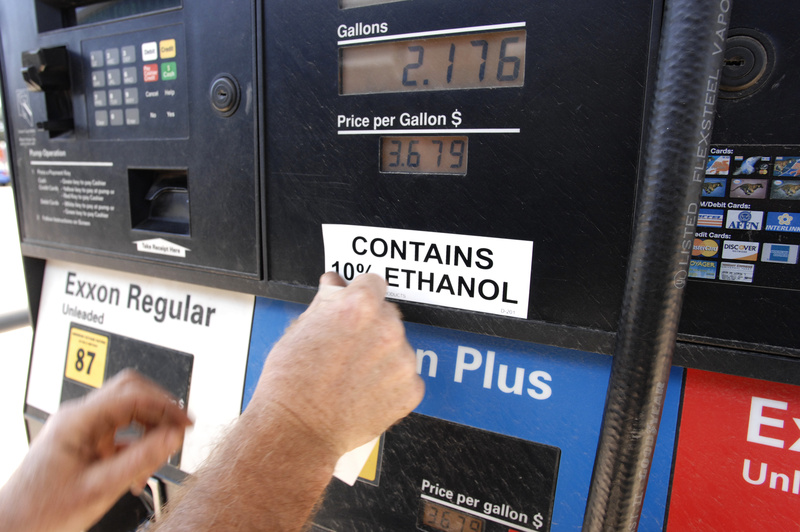AUGUSTA — The Maine Senate rejected a bill that could eventually ban the use of ethanol in motor fuel in the state in an initial vote Wednesday.
The bill, L.D. 115, would ban the use of ethanol in motor fuel in Maine, but only if two other New England states also prohibit the additive.
The 21-14 Senate vote against the bill is in conflict with a 109-32 vote in support of the bill in the House of Representatives last week. More votes are pending in order to reconcile the difference between the legislative chambers.
Rep. Jeffrey Timberlake, R-Turner, the bill’s sponsor, has made reducing the use of ethanol, a corn-based additive that many say is harmful to small engines and older car engines, a main priority of his this legislative session.
Another of his bills, L.D. 105, also was passed initially by the House last week. It would allow the sale of gasoline containing only 5 percent ethanol instead of the current 10 percent.
On the House floor last week, supporters of the bill also argued that using corn-based ethanol is essentially putting food in fuel tanks. Opponents said barring the sale of fuel with 10 percent ethanol fuel would put the state at odds with the federal Clean Air Act.
Arguments in the Senate on Wednesday followed that track.
“I don’t know how many stories I’ve heard about people having engines that were ruined” because of ethanol, said Assistant Senate Majority Leader Troy Jackson, D-Allagash. “Personally, I would pay a couple cents more (to buy fuel without it), but I don’t believe that’s going to be the case.”
Most gas available in the United States contains 10 percent ethanol, but the federal Environmental Protection Agency has declared a 15-percent blend safe for engines and allowed its sale. Last week, both chambers of the Maine Legislature unanimously passed a resolution imploring the federal government not to mandate the sale of that blend.
Still, some in the Senate thought Timberlake’s ethanol-banning bill went too far, saying a few small states banning the additive would significantly raise fuel prices.
“It would have to be a boutique gas,” said Sen. Thomas Saviello, R-Wilton.
Referring to Jackson, he added, “I’m glad my good friend can afford to pay a few cents more, but I don’t think his constituents want to pay 75 cents or 53 cents more a gallon.”
Send questions/comments to the editors.


